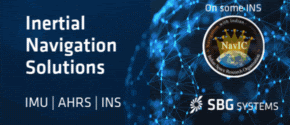| Galileo Update | |
Galileo update
Israel becomes major partner in EU satellite program
In Jerusalem, Science and Technology Minister Yaakov Peri and the head of the Israel Space Agency, Menachem Kidron, signed an agreement with European Union officials to give Israeli researchers and companies access to projects associated with the EU’s Galileo satellite program.
Officially called the Cooperation Agreement on a Civil Global Navigation Satellite System (GNSS) between the European Community and its Member States and the State of Israel, the deal was inked on the EU side by Antonio Tajani, Vice President of the European Commission, responsible for Industry and Entrepreneurship, and the incoming EU Ambassador to Israel, Lars Faaborg-Andersen.
Israeli companies will now be able to participate in tenders to supply software and hardware to companies involved in the project, and Israeli scientists and academics will be able to initiate and participate in studies and experiments that will be part of the Galileo program.
Israel had negotiated a similar but more-limited agreement with the EU about 15 years ago, but it was shelved when the European GNSS program faced difficulties getting off the ground. www.timesofisrael.com
European ground stations allow galileo to participate in search and rescue testing
ESA’s completion of a pair of dedicated ground stations at opposite ends of Europe has enabled Galileo satellites in orbit to participate in global testing of the Cospas– Sarsat search and rescue system.
The Maspalomas station, at the southern end of the largest island of the Canary Islands, at the southern fringe of European waters, was activated in June. And this last month has seen the Svalbard site on Spitsbergen in the Norwegian Arctic come on line – the two sites can already communicate and will soon be performing joint tests.
This speedy progress has enabled the participation of the latest two Galileo satellites in an international demonstration and evaluation program – a worldwide test campaign for a new expansion of the world’s oldest and largest satellite-based rescue system, Cospas–Sarsat.
Founded by Canada, France, Russia and the US, Cospas– Sarsat has assisted in the rescue of tens of thousands of souls in its three decades of service. Distress signals from across the globe are detected by satellites, then swiftly relayed to the nearest search and rescue (SAR) authorities.
Now the program is introducing a new medium-orbit SAR system to improve coverage and response times, with the Galileo satellites in the vanguard of this major expansion. ESA www.redorbit.com












 (No Ratings Yet)
(No Ratings Yet)





Leave your response!